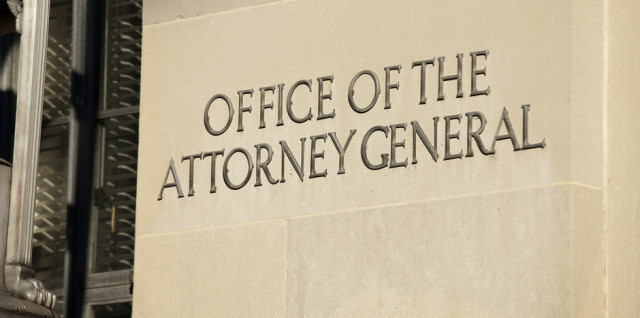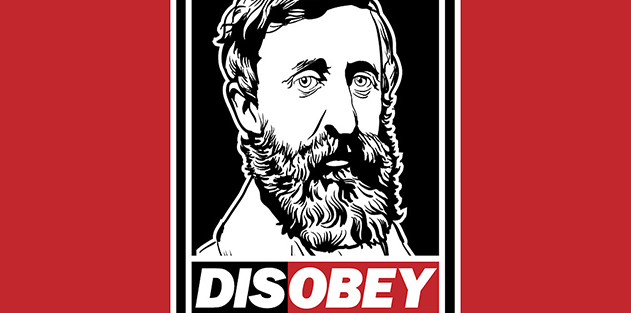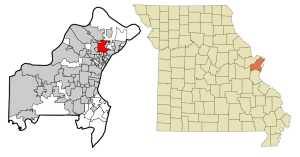The Feds vs. Reason.com Commenters by Ryan Radia
Our friends over at the Reason Foundation, a venerable libertarian think tank and publisher of Reason magazine, recently received a grand jury subpoena from a federal prosecutor in New York, reports Ken White at Popehat.
The subpoena demands that Reason disclose “all identifying information” it has regarding six pseudonymous users who posted comments about the death and afterlife of a federal judge on Reason’s Hit & Run blog.
These comments came in response to a May 31 post by Nick Gillespie about the trial and sentencing of Ross Ulbricht, who was convicted in February of running an Internet-based narcotics and money laundering platform known as Silk Road.
In late May, Judge Katherine Forrest, who sits on the US District Court for the Southern District of New York, sentenced Ulbricht to life in prison. This sentence was met with mixed reactions, with many commentators criticizing Judge Forrest for handing down what they perceived as an exceedingly harsh sentence.
A few Reason users, some of whom may have followed Reason’s extensive coverage of the fascinating trial, apparently found Ulbricht’s sentence especially infuriating.
One commenter argued that “judges like these … should be taken out back and shot.” Another user, purporting to correct the preceding comment, wrote that “it’s judges like these that will be taken out back and shot.” A follow-up comment suggested the use of a “wood chipper,” so as not to “waste ammunition.” And a user expressed hope that “there is a special place in hell reserved for that horrible woman.”
Within hours, the office of Preet Bharara, the US Attorney for the Southern District of New York, sent Reason a subpoena for these commenters’ identifying information “in connection with an official criminal investigation of a suspected felony being conducted by a federal grand jury.”
This doesn’t mean a grand jury actually asked about the commenters; instead, in federal criminal investigations, it’s typically up to the US Attorney to decide when to issue a subpoena “on behalf” of a grand jury.
The subpoena demands from Reason information about the six users, including their email and Internet Protocol (IP) addresses — which, if disclosed, could enable the government to uncover the true identities of the commenters, perhaps after another round of subpoenas are sent to the users’ respective Internet Service Providers.
Popehat’s Ken White is quite troubled by the government’s decision to issue this subpoena. Ilya Somin, writing at The Volokh Conspiracy, also objects to the subpoena. So do the Cato Institute’s Tim Lynch and Techdirt’s Mike Masnick, among many others.
I too find it quite concerning. Even if this subpoena is valid under current law — more on that angle in a bit — the government made a serious mistake in seeking to force Reason to hand over information that could uncover the six commenters’ identities.
Unless the Department of Justice is investigating a credible threat to Judge Forrest with some plausible connection to the Reason comments at issue, this subpoena will serve only to chill hyperbolic — but nonetheless protected — political speech by anonymous Internet commenters.
And if Reason decides to stand up for its users’ rights, the resulting court battle will amount to a waste of federal law enforcement resources that could instead help bring actual criminals to justice, as Tim Lynch reminds us.
To be sure, I have no problem with the feds seeking to locate and prosecute people who actually threaten to commit murder — which, if transmitted in interstate commerce, is a federal crime under Title 18 USC. § 875.
Threatening to kill a federal judge is especially problematic; assassinations of federal judges do happen from time to time. As such, it’s only natural that law enforcement takes such threats seriously.
Yet, while the comments identified in the subpoena are undeniably vile, they’re also protected by the First Amendment, and rightly so. Hyperbolic political statements have a long history in the United States.
For instance, Ken Shultz notes that Martin Luther King, Jr., once said that “the hottest place in Hell is reserved for those who remain neutral in times of great moral conflict.” Sound familiar?
As for the comments about shooting a federal judge, consider the Vietnam War-era prosecution of Robert Watts for “knowingly and willfully threatening the President.”
At age eighteen, Watts said that if he were forced to join the military and “carry a rifle,” then the “first man I want to get in my sights is L.B.J.” The Supreme Court reversed his conviction, finding that Watts had merely “indulged” in a “kind of political hyperbole.” Id. at 708.
Although these statements, like the Reason comments quoted above, are understandably offensive to many listeners, causing offense alone is no basis for outlawing speech. To the contrary, “a function of free speech under our system of government is to invite dispute,” as the Supreme Court has noted. Indeed, speech can sometimes “best serve its high purpose when it induces a condition of unrest, creates dissatisfaction with conditions as they are, or even stirs people to anger.”
As for the hyperbolic comments posted on Reason about Judge Forrest, they are plainly not “true threats,” but mere “angry bluster,” as Ken White explains in detail.
The remarks, he notes, were not directed to the Judge, or reasonably calculated to reach her; instead, they appeared on a libertarian political blog notorious for its trash-talking commentariat. The comments lacked any specifics about a specific person’s plans to actually carry out an act of violence; instead, they merely expressed a general desire that a particular person be killed.
And while courts have held on occasion that hoping for someone’s death without evincing a desire to personally kill them can be a true threat, this requires some “causal connection” between the statement and the desired outcome. Again, the Reason comments don’t come close to meeting this threshold.
In short, even if the six Reason users are indicted on federal criminal charges, the First Amendment means the government is all but guaranteed to lose (barring the unlikely scenario the US Attorney’s office is sitting on some damning evidence it hasn’t disclosed).
If the commenters didn’t break the law, then, why can the government use its subpoena power to force Reason to hand over whatever personal information it’s collected about them? Because, as Ken White frets, the US Attorney’s power to issue grand jury subpoenas is so broad that, in most cases, they can be quashed only “when they are irrationally burdensome … or for an improper purpose.”
Moreover, a grand jury — which, again, is typically just another word for “federal prosecutor” — is afforded “wide latitude” in investigating potential crimes, and the “law presumes, absent a strong showing to the contrary, that a grand jury acts within the legitimate scope of its authority.”
And when a grand jury subpoena is “challenged on relevancy grounds the motion to quash must be denied unless the district court determines that there is no reasonable possibility that the category of materials the Government seeks will produce information relevant to the general subject of the grand jury’s investigation.”
What about a grand jury subpoena that implicates First Amendment interests?
In theory, “where values of expression are potentially implicated,” a district court should act with “special sensitivity” to “prevent the chilling effect” of “prosecutorial abuse,” in the words of the Fourth Circuit.
In practice, however, courts are extremely reluctant to quash a federal grand jury subpoena on First Amendment grounds. For instance, the District Court for the District of Columbia held in 2011 that “merely issuing a subpoena to uncover the identity of the speaker so that the police can ascertain whether a threat is valid cannot be deemed a Constitutional violation.”
Where does all of this leave us? Reason could move to quash the subpoena — or at least petition the court to limit its scope to identifying information about the more threatening commenters — on the basis that, absent additional evidence that its commenters’ identities are related in any way to some criminally actionable threat, enforcing the subpoena would undermine Reason commenters’ constitutional interest in anonymity while generating information of “negligible value to the government.”
However, because Reason probably could not show the US Attorney is acting in bad faith, or that complying with the subpoena would be unduly burdensome, Reason’s chances of prevailing if it chooses to fight back are not good. That’s a problem for all of us.
This piece first appeared at CEI.org.
Ryan Radia is an Associate Director of Technology Studies at the Competitive Enterprise Institute. He focuses on adapting law and public policy to the unique challenges of the information age.







 The resisting property owners tried to use the political process to prevent the takings. They managed to attract the support of a wide range of people in the community, including many on the political left who believed that it was wrong to forcibly expel people from their homes in order to promote commercial development.
The resisting property owners tried to use the political process to prevent the takings. They managed to attract the support of a wide range of people in the community, including many on the political left who believed that it was wrong to forcibly expel people from their homes in order to promote commercial development.








